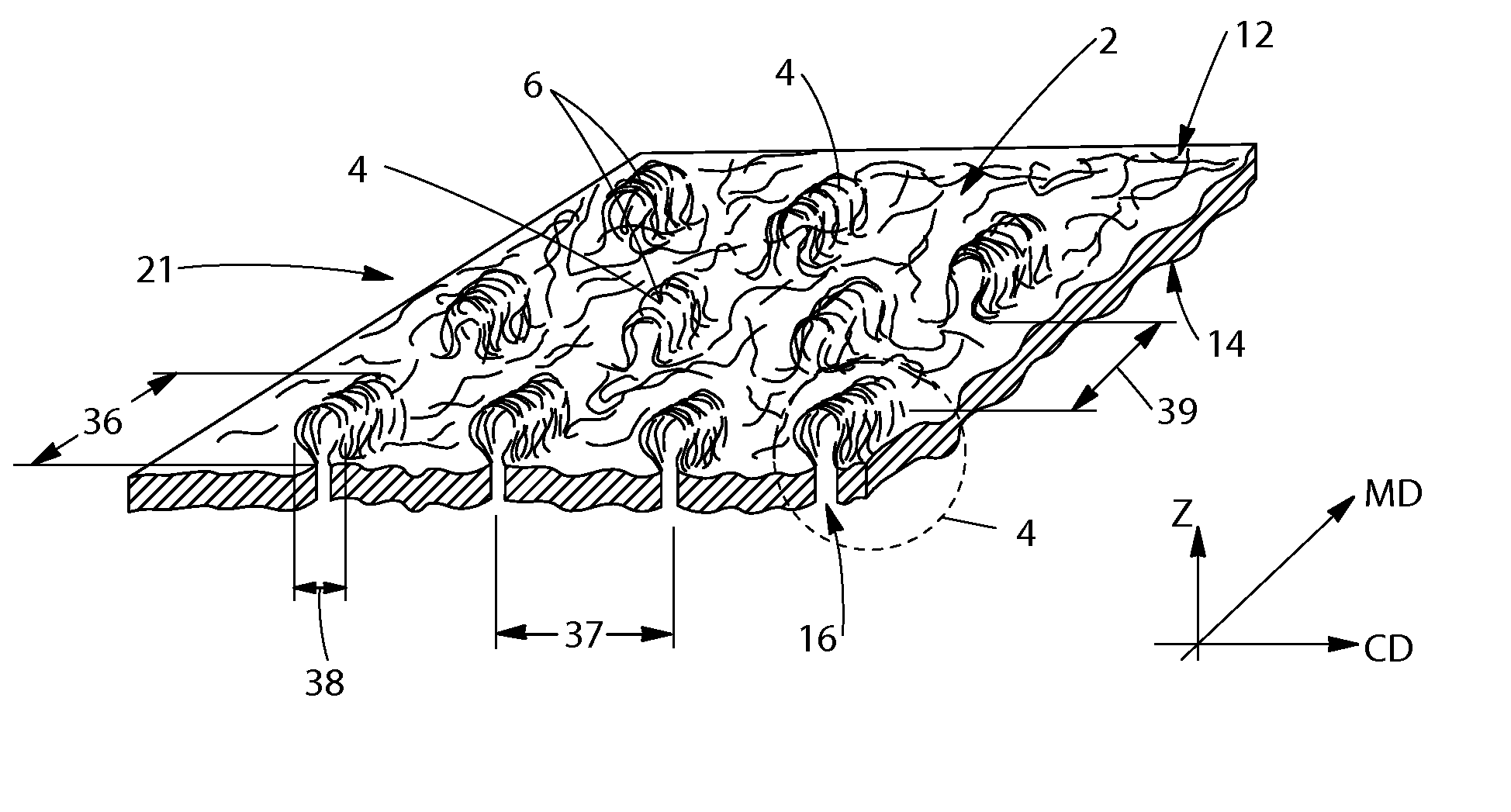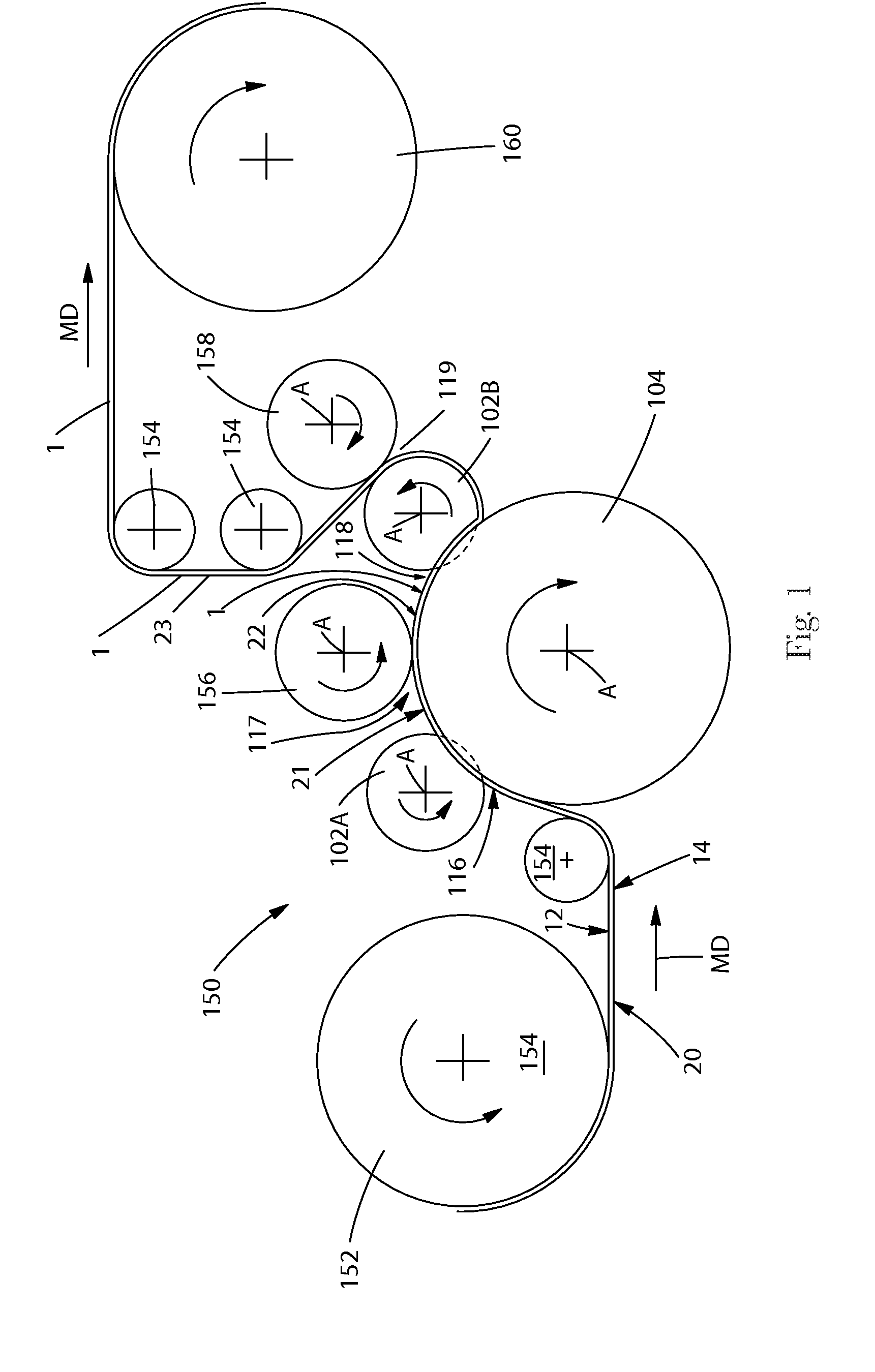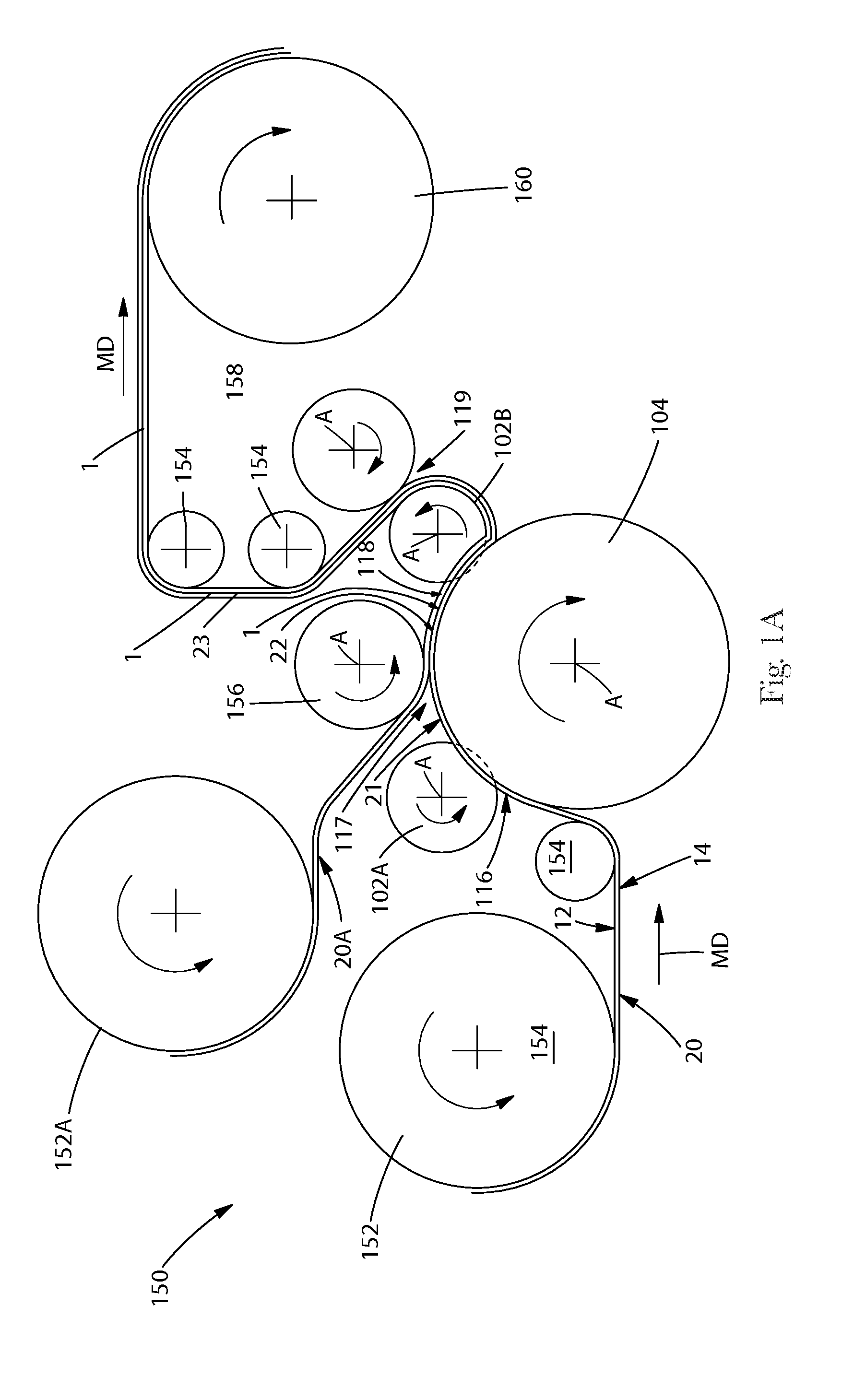Structured fibrous web
a fibrous web and structure technology, applied in the field of fibrous webs, can solve the problems of difficult maintenance of the caliper of a nonwoven fabric, unsatisfactory for consumers,
- Summary
- Abstract
- Description
- Claims
- Application Information
AI Technical Summary
Benefits of technology
Problems solved by technology
Method used
Image
Examples
example 1
[0198]Spunbond fabrics were produced composed of 90 wt % Eastman F61HC PET resin and 10 wt % Eastman 9921 coPET. The spunbond fabrics were produced using a pronounced trilobal spinneret that had 1.125 mm length and 0.15 mm width with a round end point. The hydraulic length-to-diameter ratio was 2.2:1. The spinpack had 250 capillaries of which 25 extruded the coPET resin and 225 extruded the PET resin. The beam temperature used was 285° C. The spinning distance was 33 inches and the forming distance was 34 inches. Different distances could be used in this and subsequent examples, but distance indicated provided the best results. The remainder of the relevant process data is included in Table 1-3.
example 2
[0200]Spunbond fabrics were produced composed of 100 wt % Eastman F61HC PET. The spunbond fabrics were produced using a pronounced trilobal spinneret that had 1.125 mm length and 0.15 mm width with a round end point. The hydraulic length-to-diameter ratio was 2.2:1. The spinpack had 250 capillaries. The beam temperature used was 285° C. The spinning distance was 33 inches and the forming distance was 34 inches. The remainder of the relevant process data is included in Table 1-3.
example 3
[0201]Spunbond fabrics were produced composed of 90 wt % Eastman F61HC PET resin and 10 wt % Eastman 9921 coPET. The spunbond fabrics were produced using a standard trilobal spinneret that had 0.55 mm length and 0.127 mm width with a round end point with radius 0.18 mm. The hydraulic length-to-diameter ratio was 2.2:1. The spinpack had 250 capillaries of which 25 extruded the coPET resin and 225 extruded the PET resin. The beam temperature used was 285° C. The spinning distance was 33 inches and the forming distance was 34 inches. The remainder of the relevant process data is included in Table 4-6.
PUM
| Property | Measurement | Unit |
|---|---|---|
| shrinkage | aaaaa | aaaaa |
| specific volume | aaaaa | aaaaa |
| density | aaaaa | aaaaa |
Abstract
Description
Claims
Application Information
 Login to View More
Login to View More - R&D
- Intellectual Property
- Life Sciences
- Materials
- Tech Scout
- Unparalleled Data Quality
- Higher Quality Content
- 60% Fewer Hallucinations
Browse by: Latest US Patents, China's latest patents, Technical Efficacy Thesaurus, Application Domain, Technology Topic, Popular Technical Reports.
© 2025 PatSnap. All rights reserved.Legal|Privacy policy|Modern Slavery Act Transparency Statement|Sitemap|About US| Contact US: help@patsnap.com



